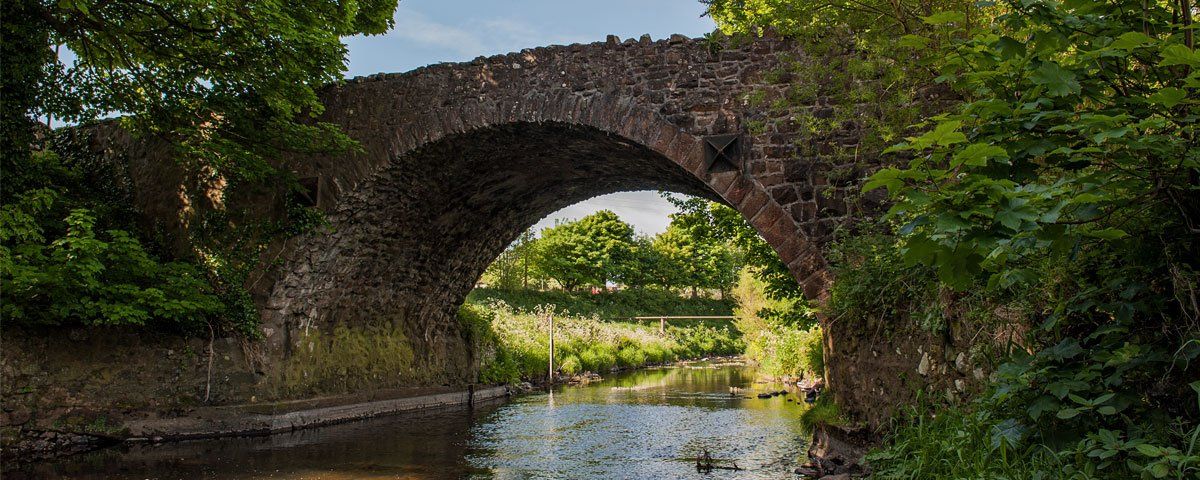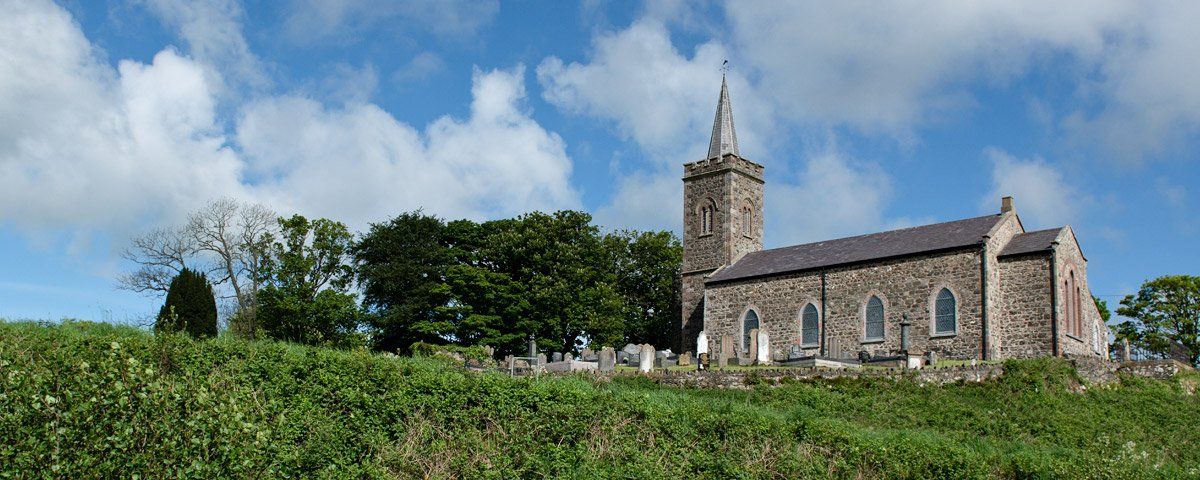Armoy
In 1996 the local community group bought the the old unused cinema and transformed it back into community use complete with retail units, offices and spacious holiday apartments overlooking the River Bush. The road through the old part of the village follows the curve of the river over a wonderful humpback bridge and past the Presbyterian Church. The humpback bridge is a classical example of its type and it is well worth taking a walk into Riverside Park where you can get the best view of its unique construction. The village was once served by the Ballymoney to Ballycastle narrow gauge railway which opened in 1880 and closed in 1950. The old station house still stands in a farmyard a short distance along the Carrowreagh Road, at the Dark Hedges another halt was built to serve the big house at the bottom of the tree-lined avenue.
The picturesque village of Armoy has many unique connections to discover and places of interests to visit, the lyrics of the song 'Lovely Armoy' expresses its beauty through a lament of someone leaving this rural village. Although the author who penned the song is unknown, his sentiments can be seen in the setting and layout of the village surrounded by glacial drumlins, the fairytale bridge and a 'time has stood still' atmosphere beside the river Bush. In the past, the village centrepiece was a building beside the river known as 'Tilly Molloy's', for decades it was a focal point for village dances, social evenings, drama and a cinema but fell into dereliction in the mid-1970s and abandoned.
At Limepark just outside the village on the Ballymena Road, you will find a cairn erected to commemorate the 7th World Ploughing Contest held here on October 8/9th, 1959. The cairn contains individually engraved stones from all the countries that took part in the contest and is crowned by a replica of the trophy itself. Countries represented were - Belgium, Canada, Denmark, France, Finland, Great Britain, Germany, Holland, Italy, Norway, Sweden, United States, New Zealand, Northern Ireland, Australia and Austria. The winner of the 1959 contest was Lawrence McMillen from Northern Ireland and the runner up, Charles Bonney from Canada.



